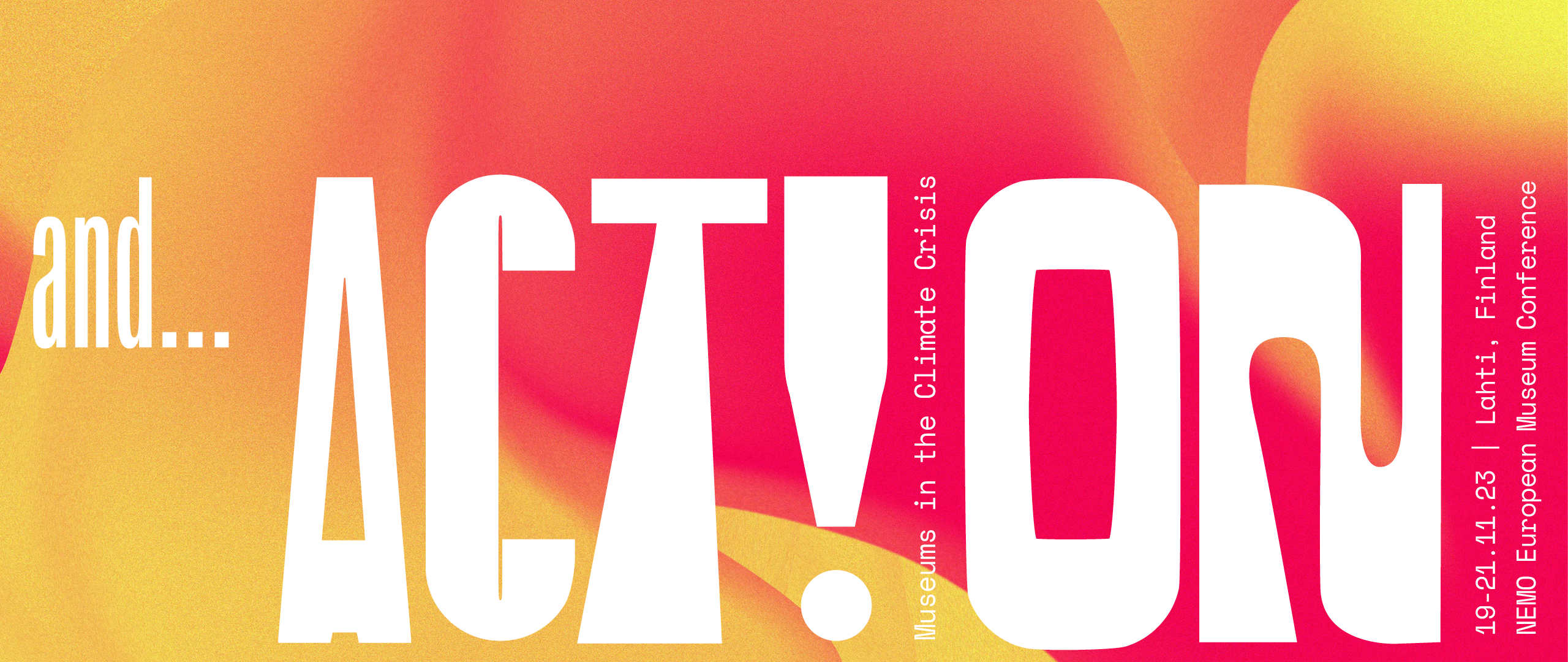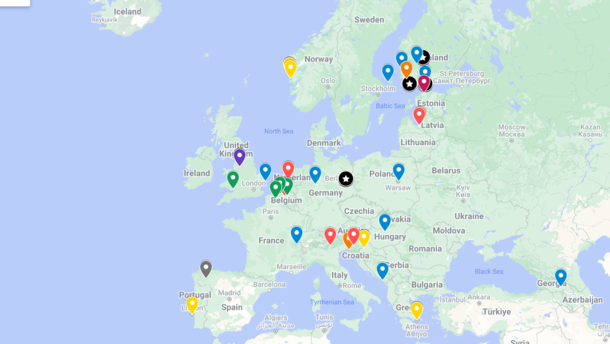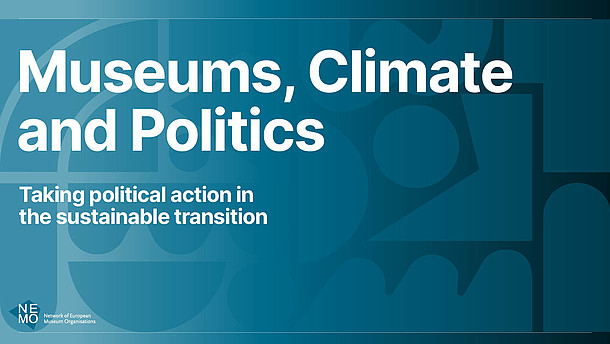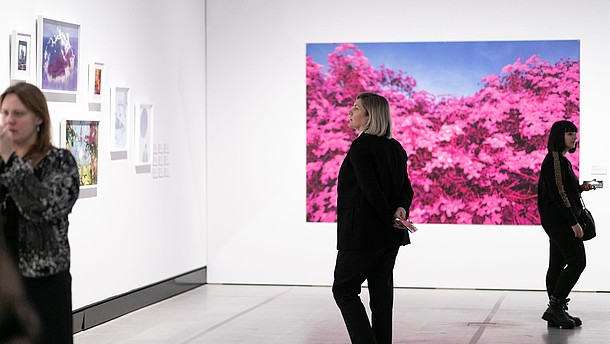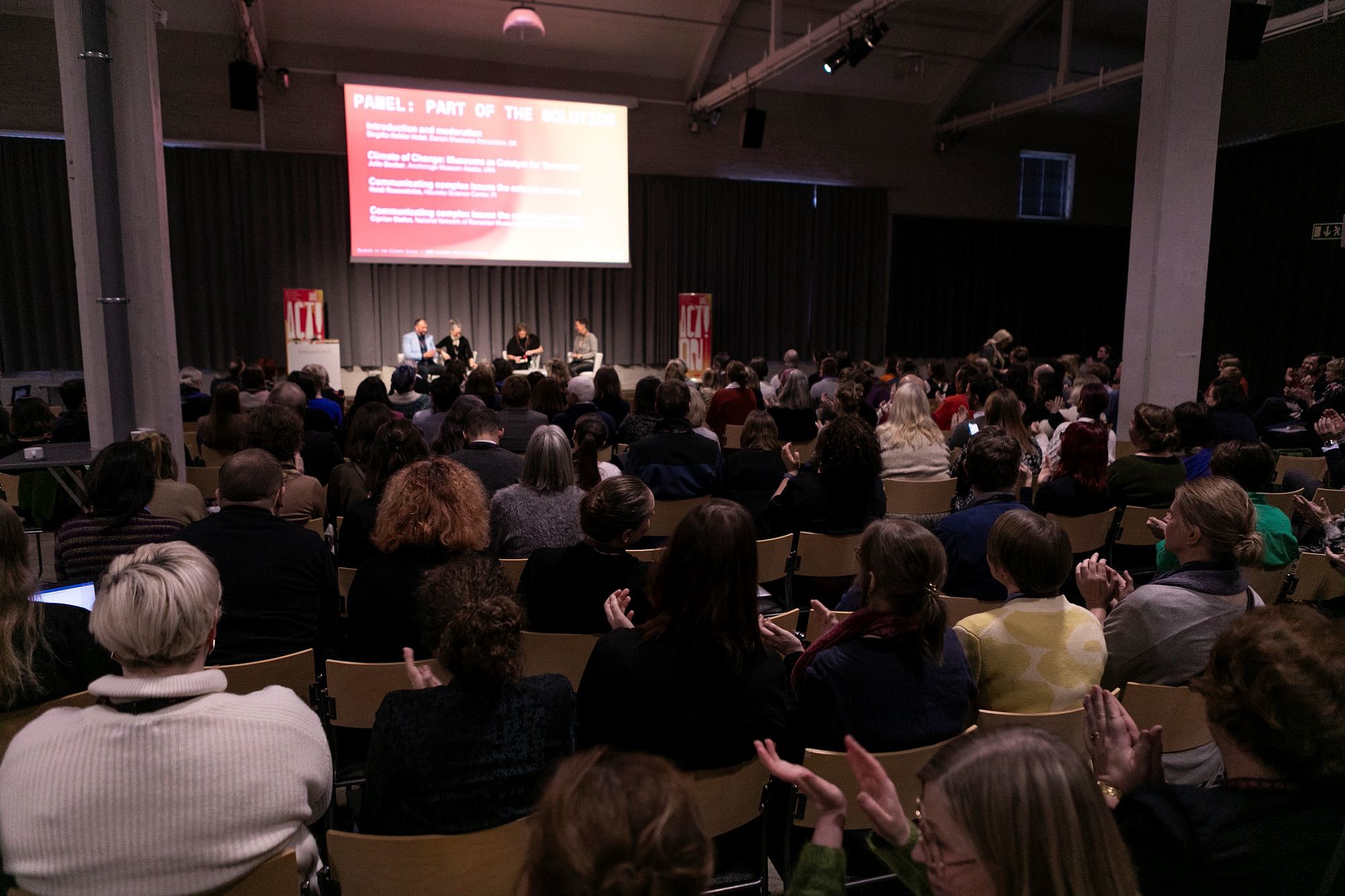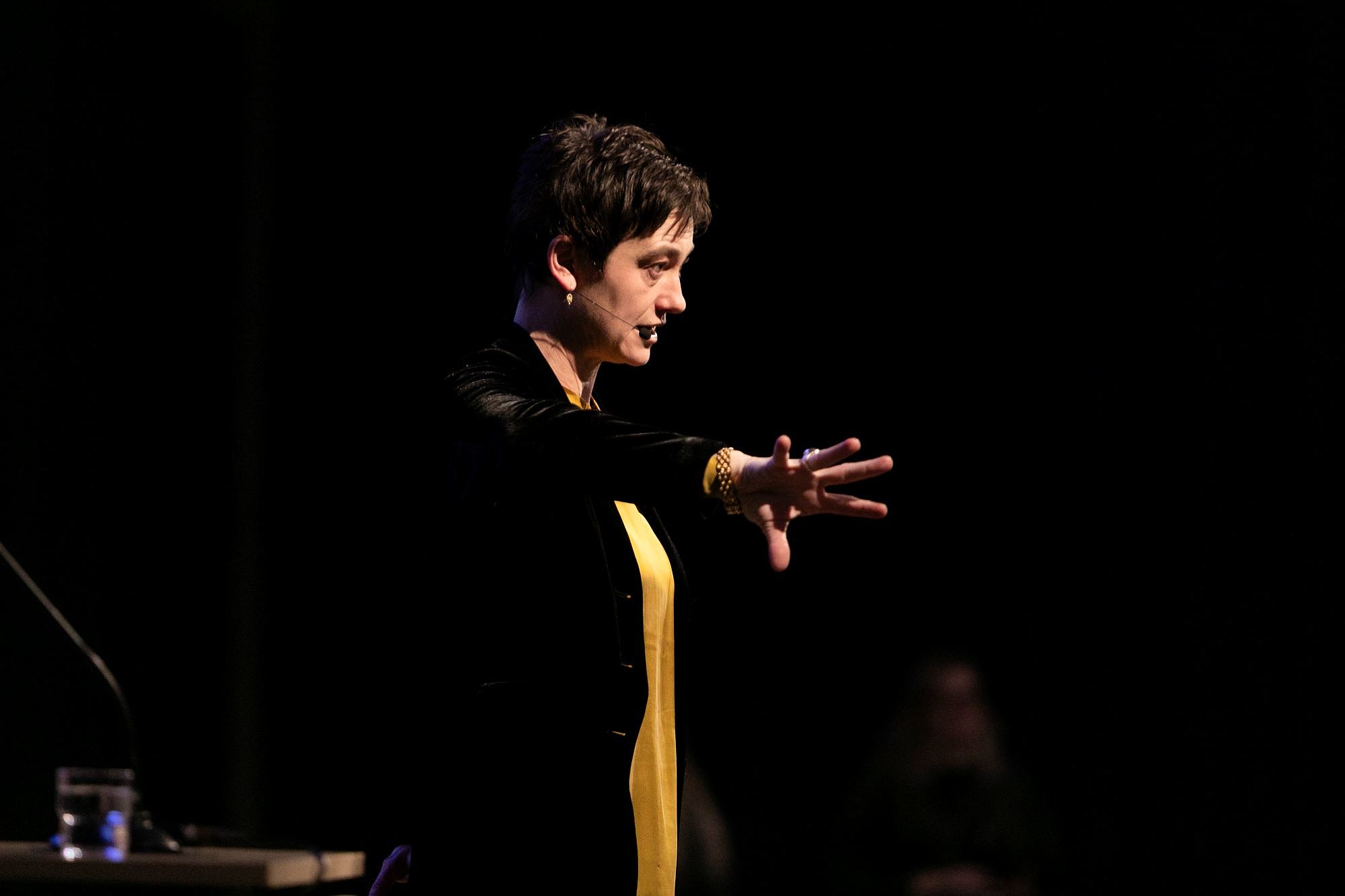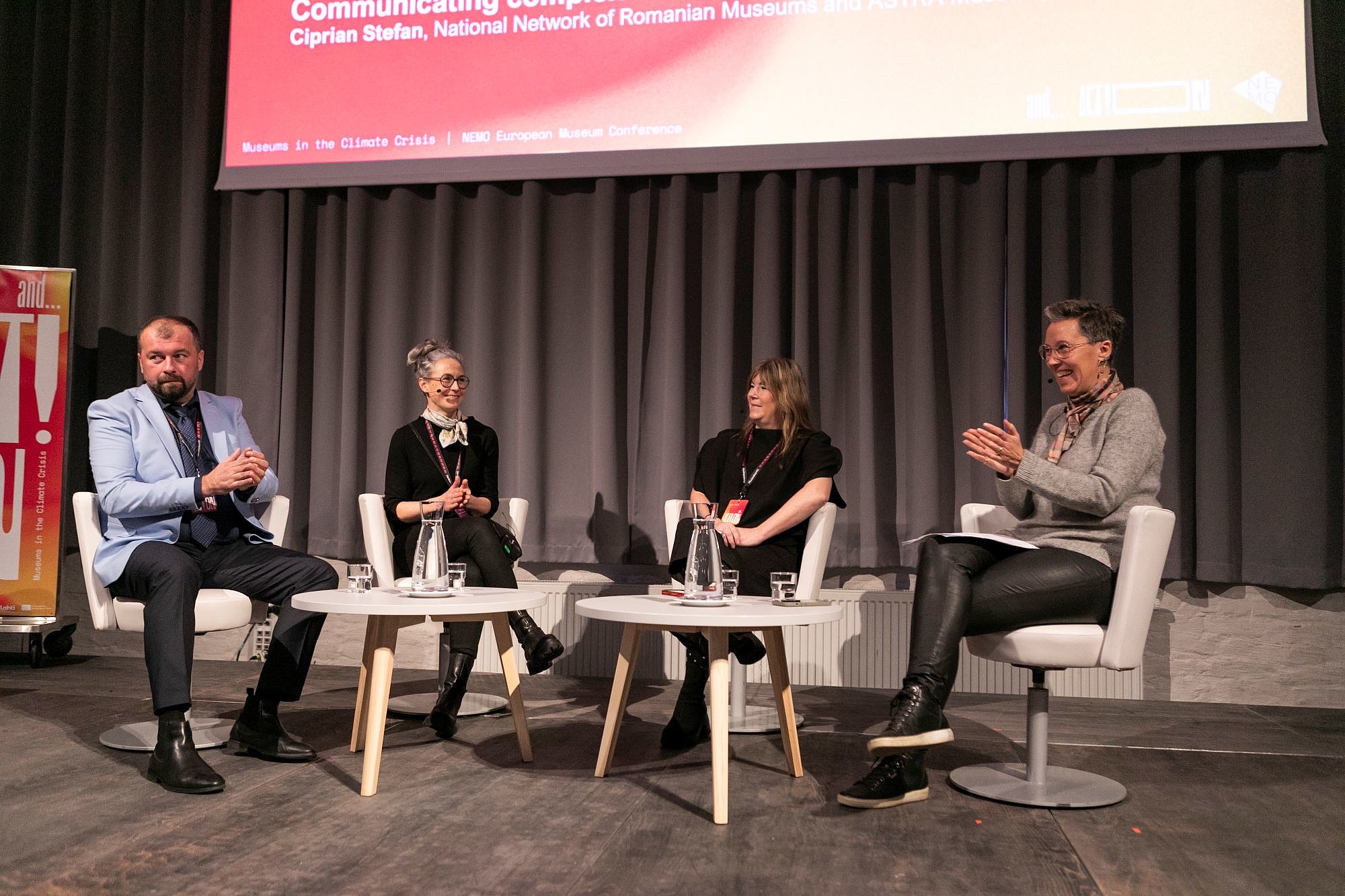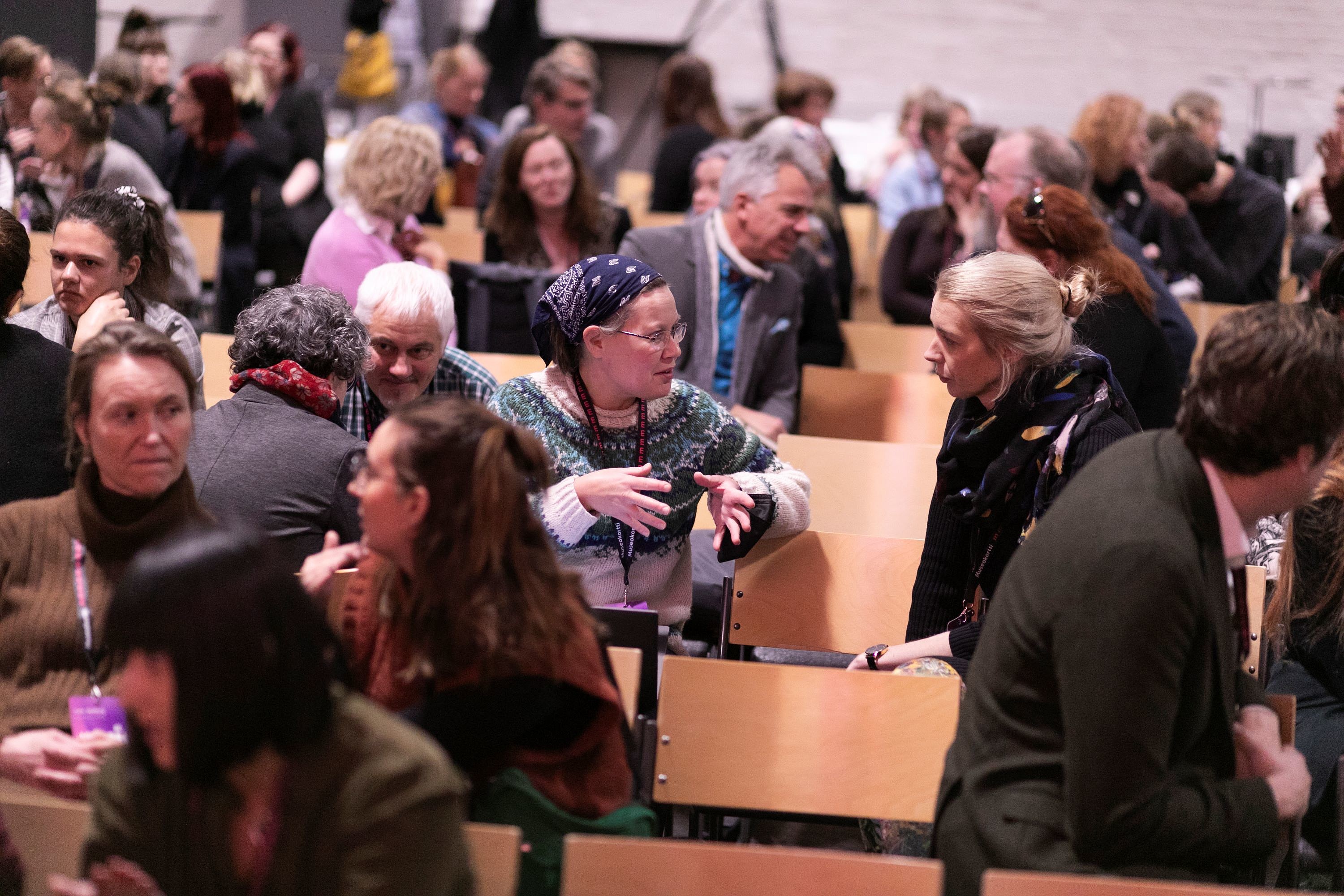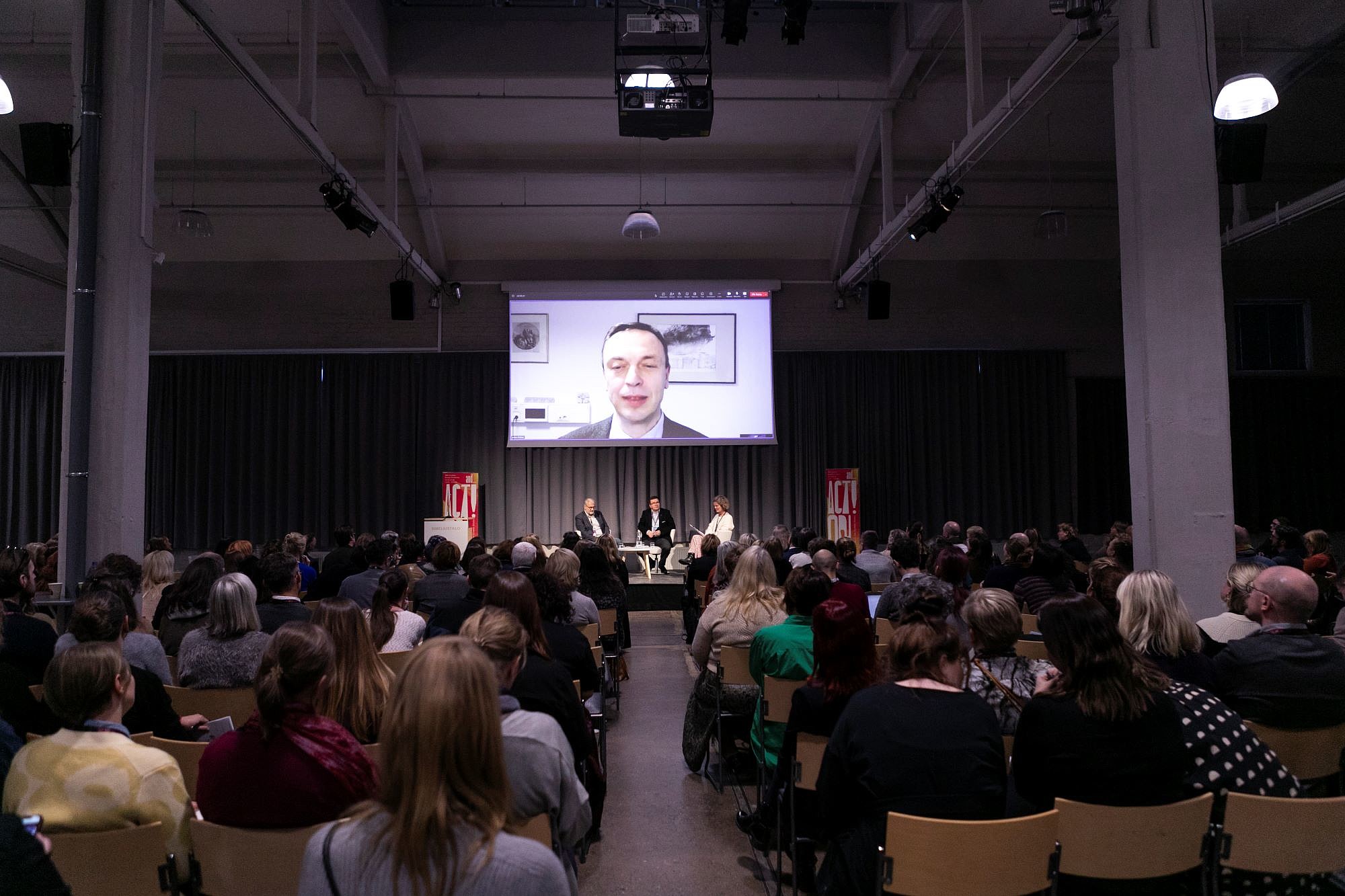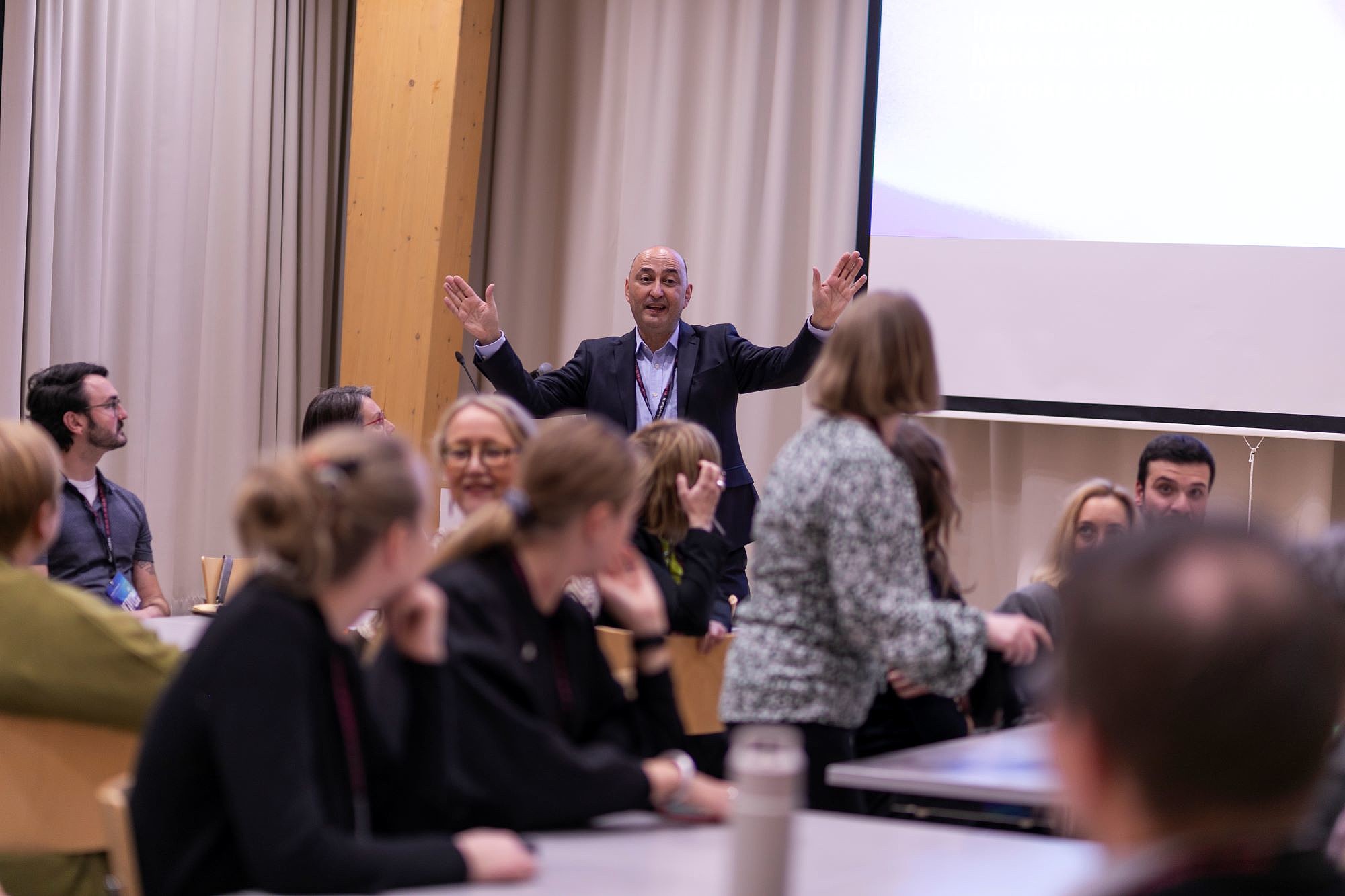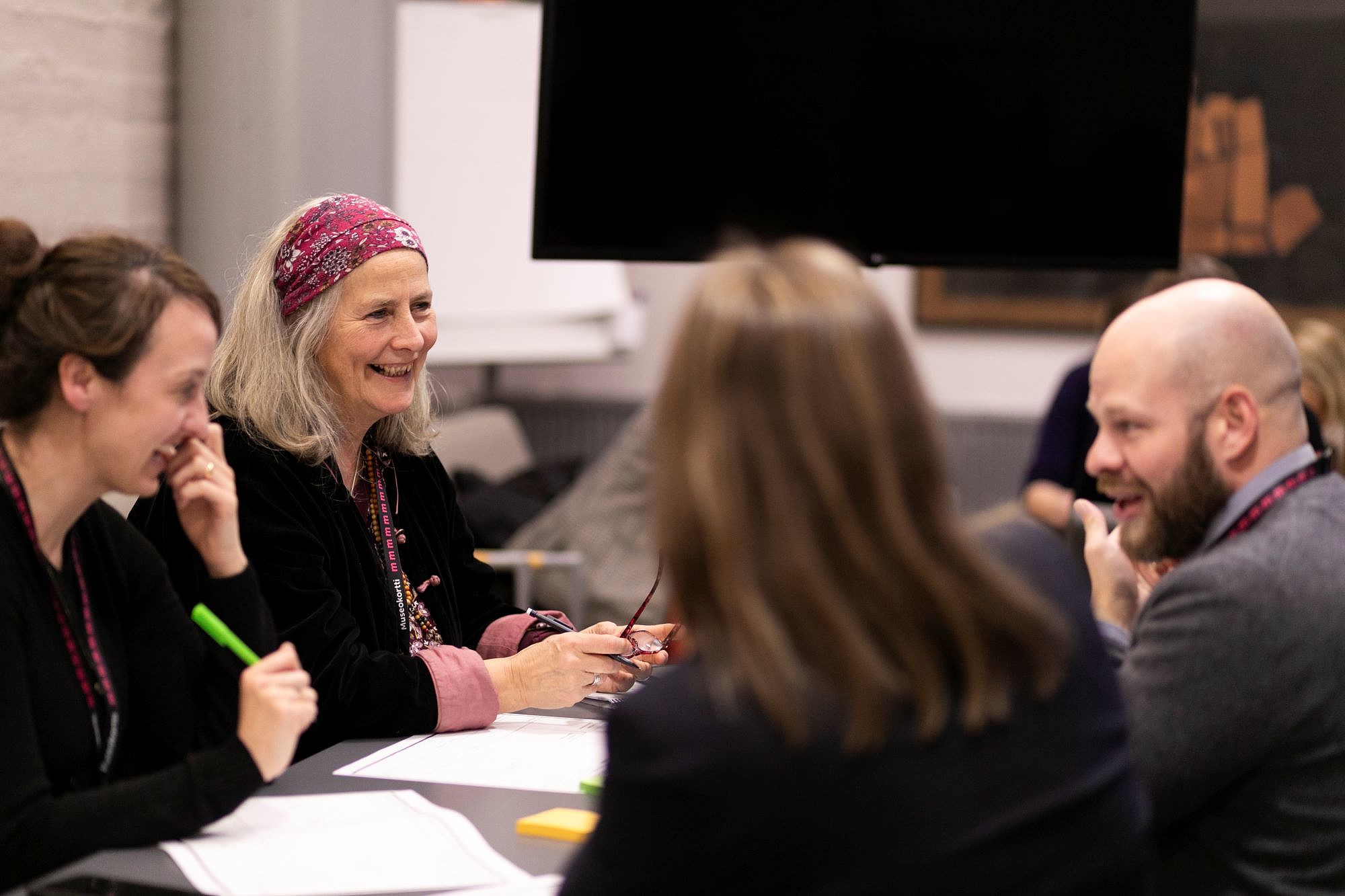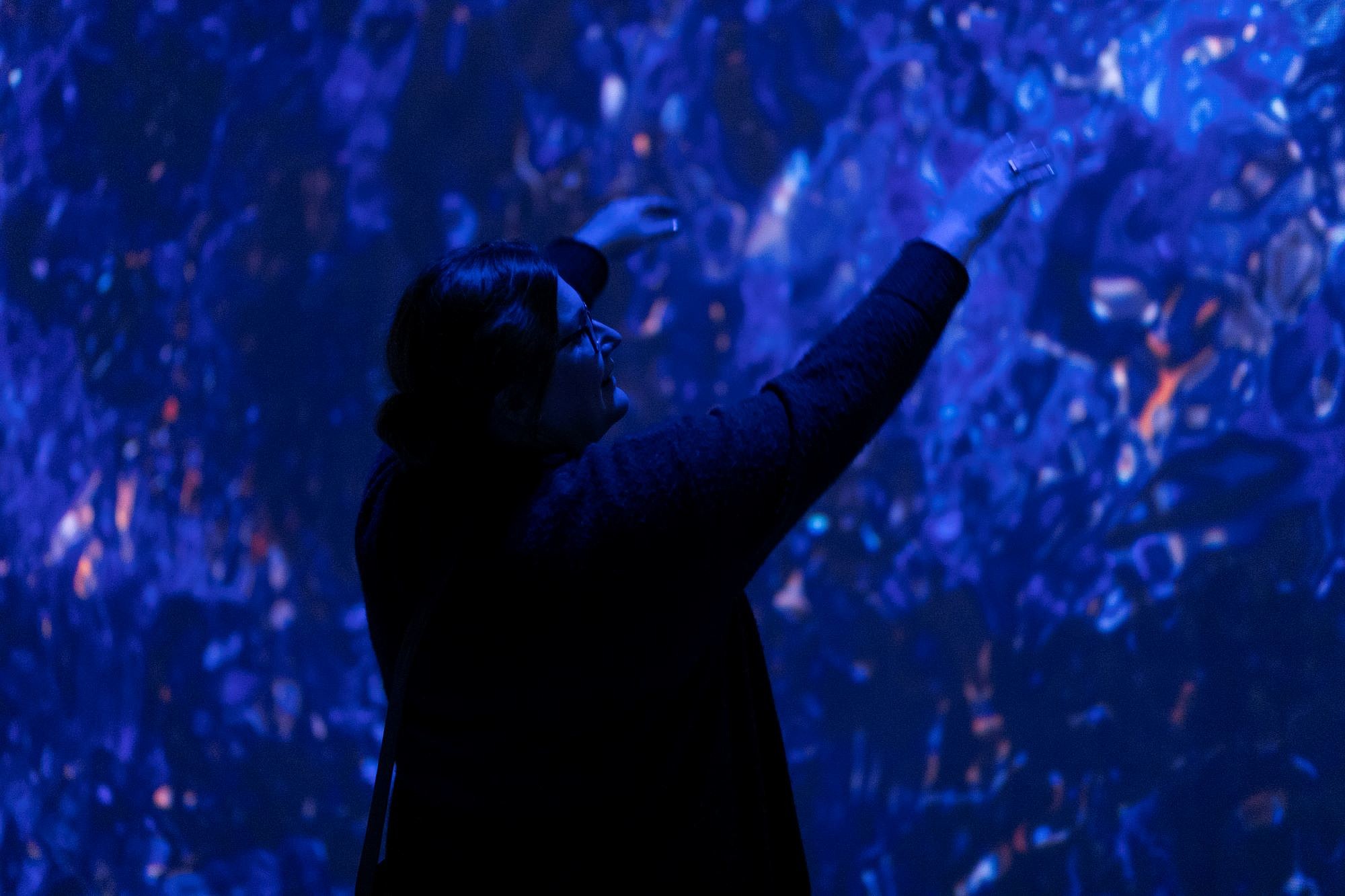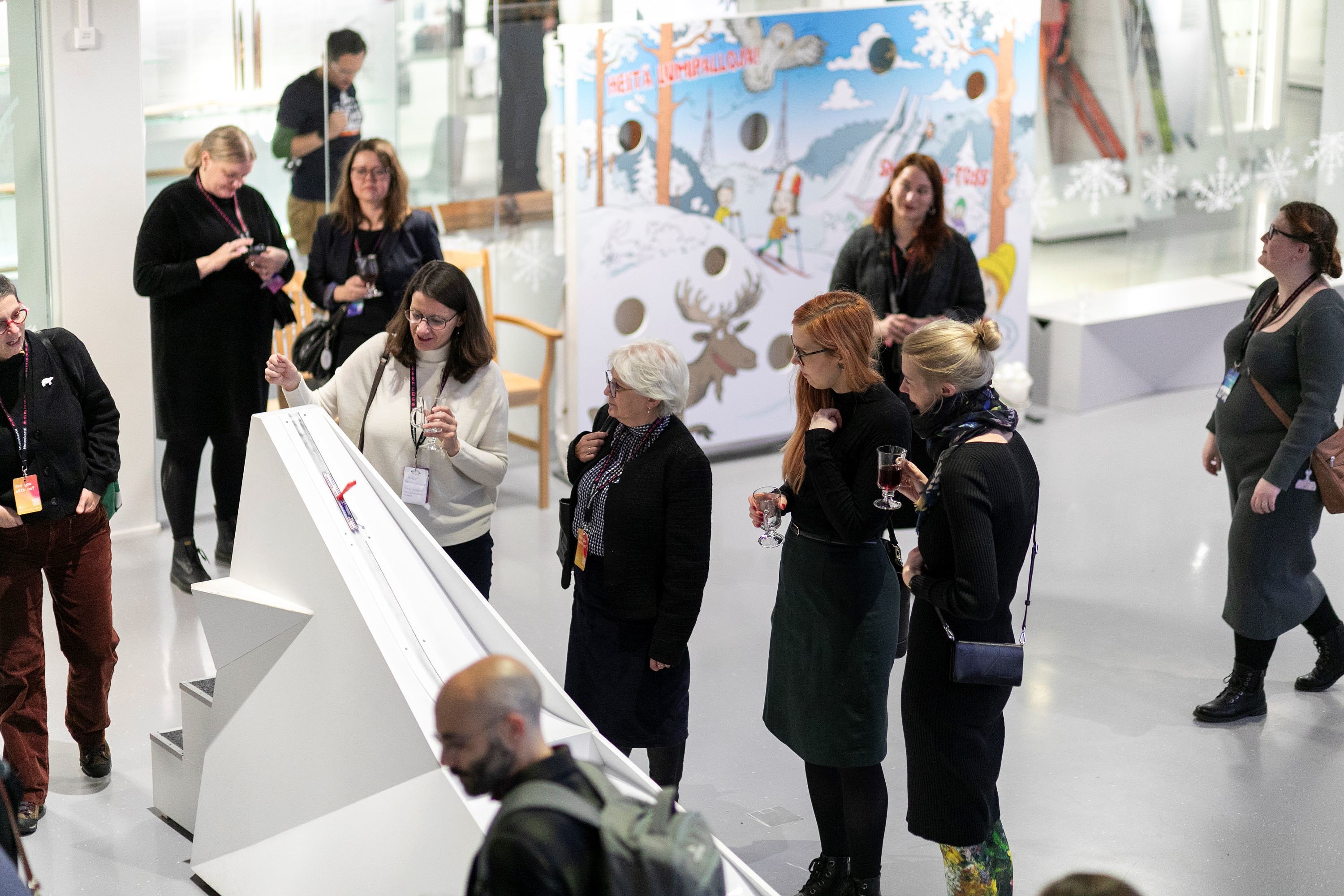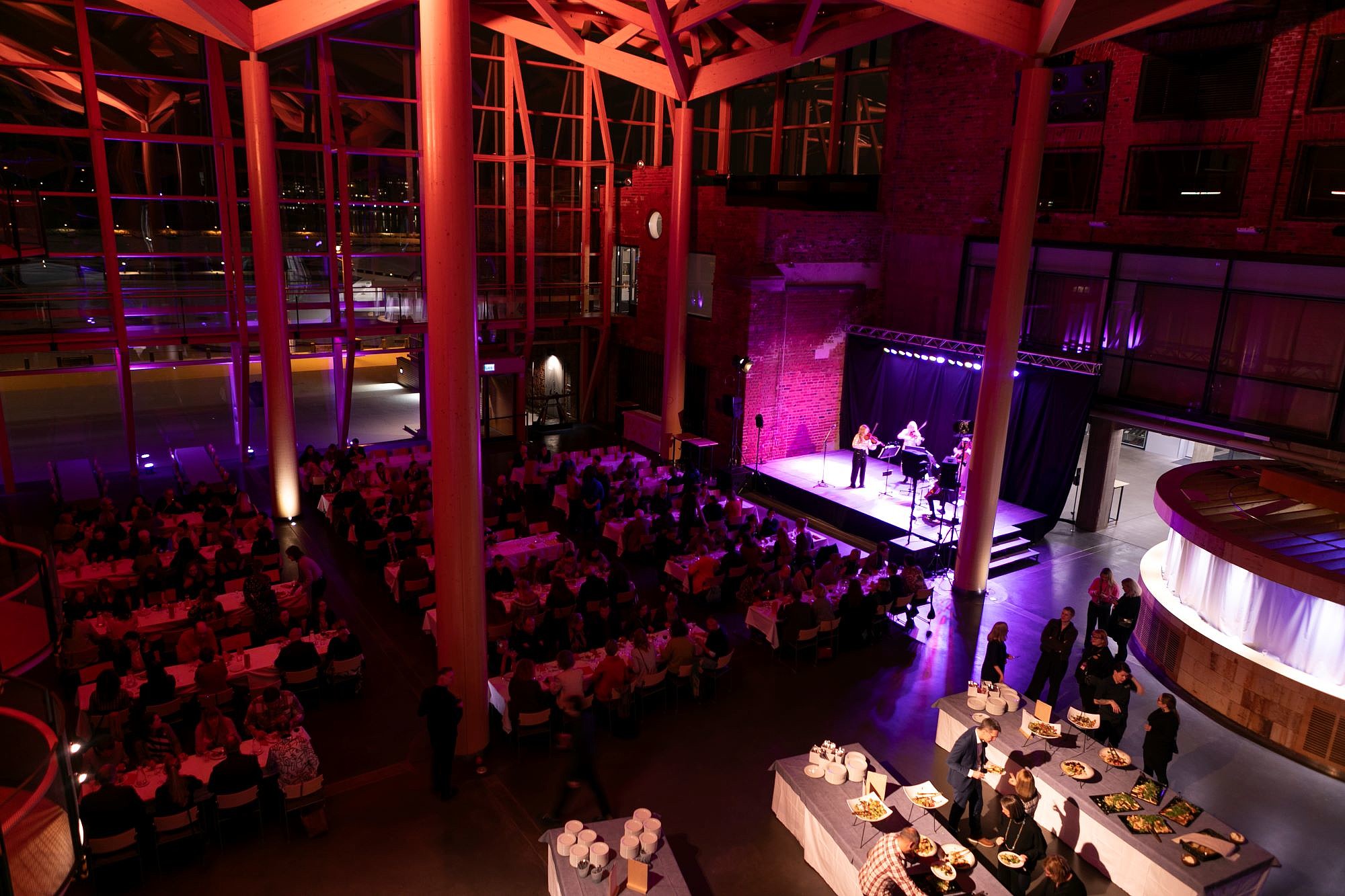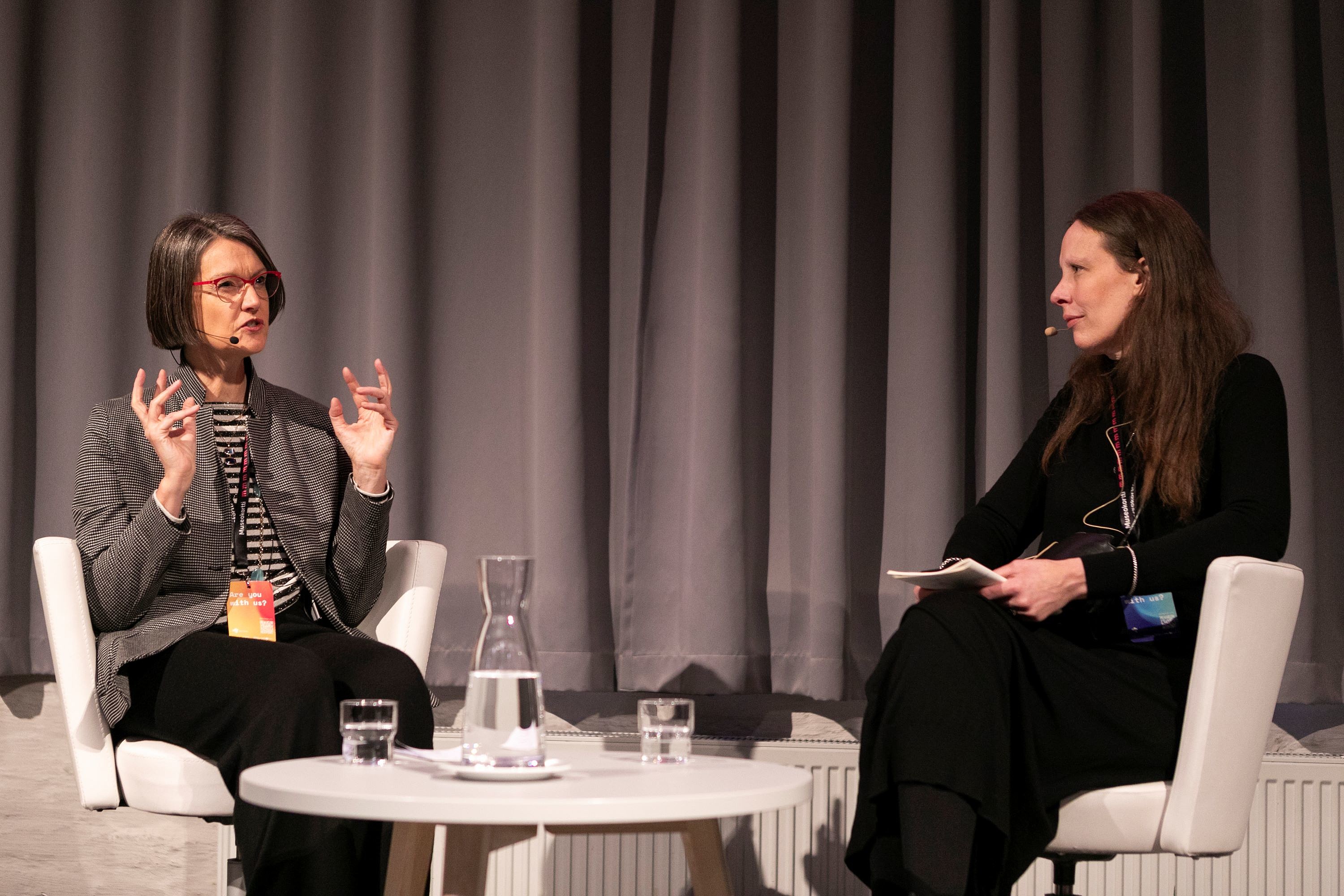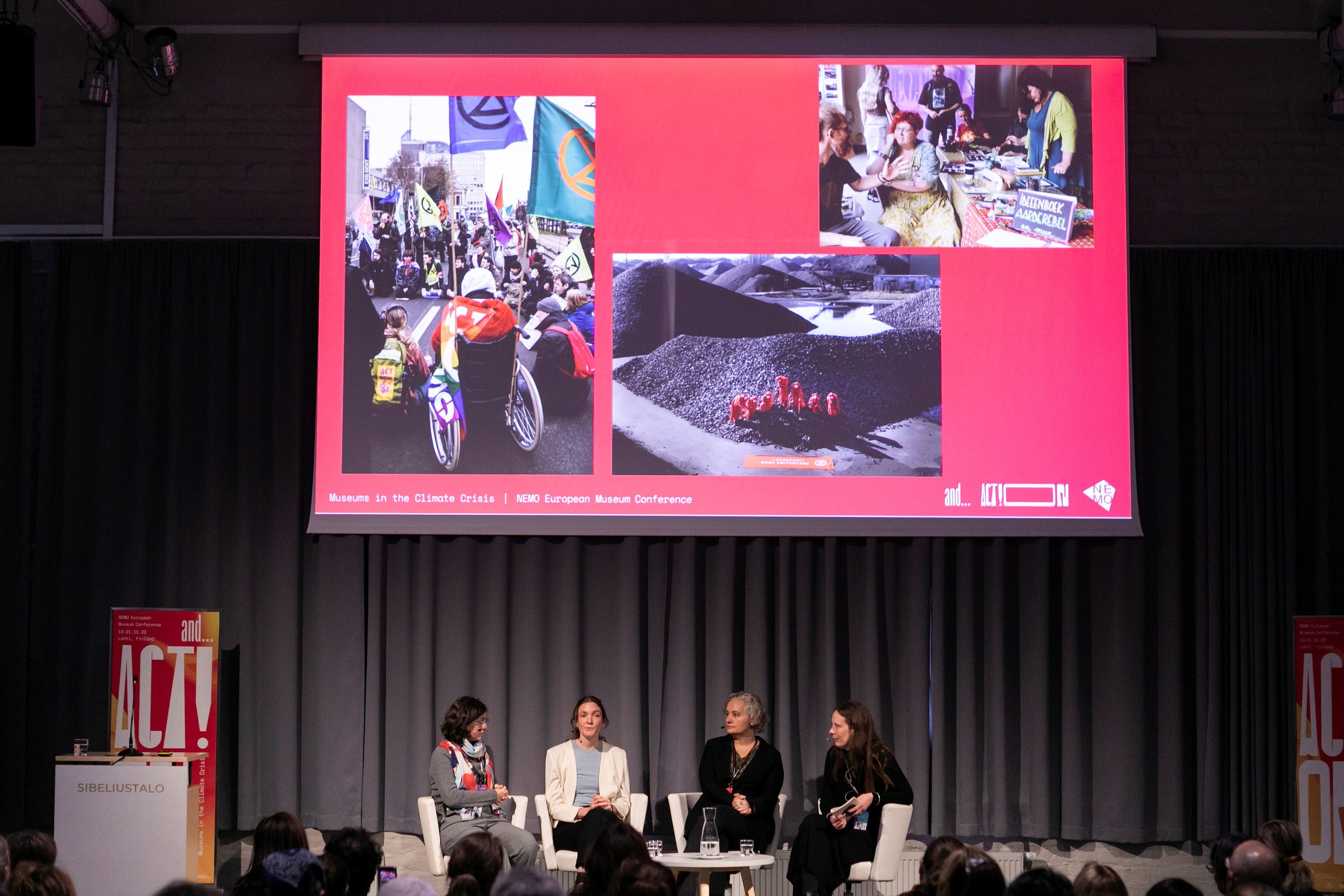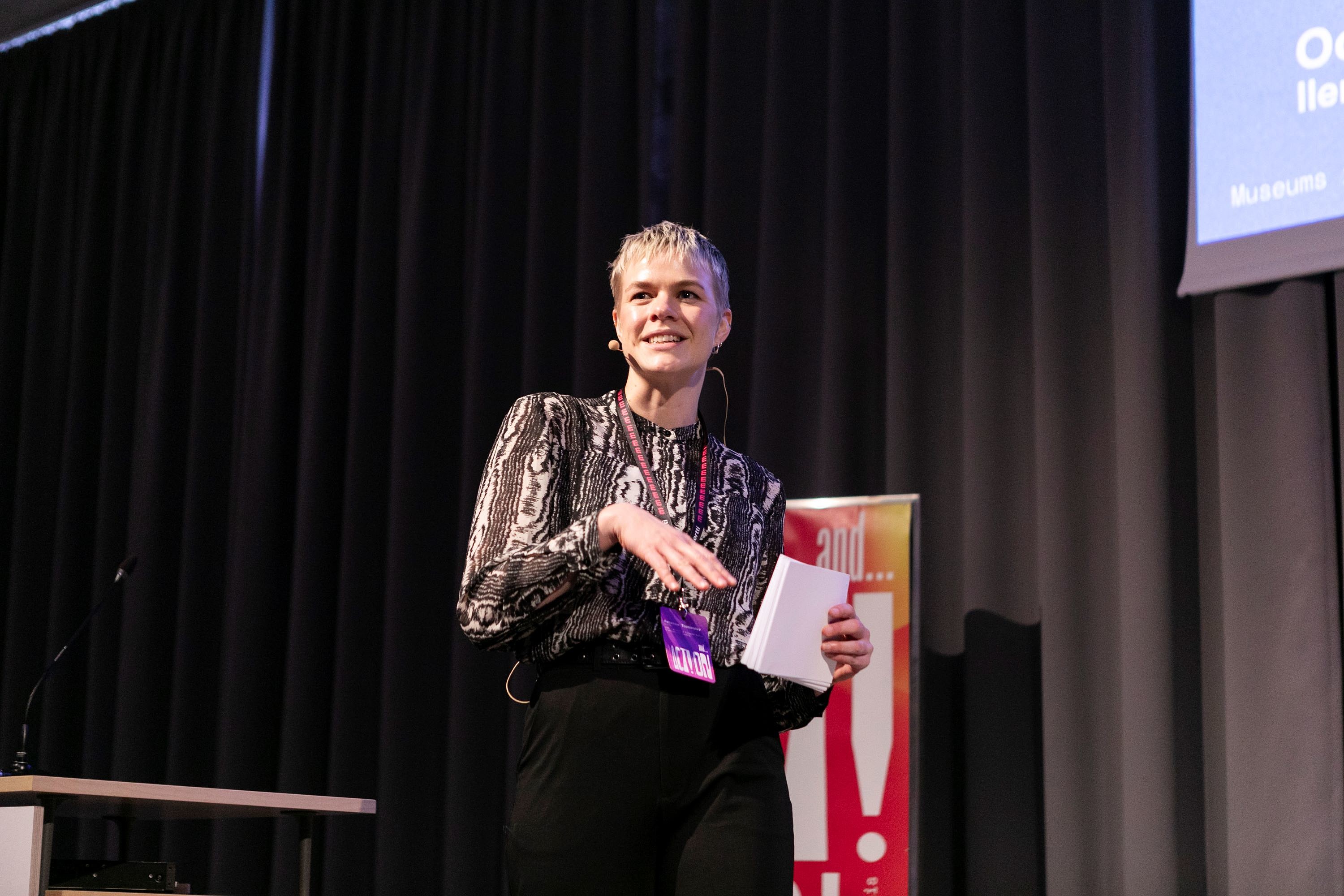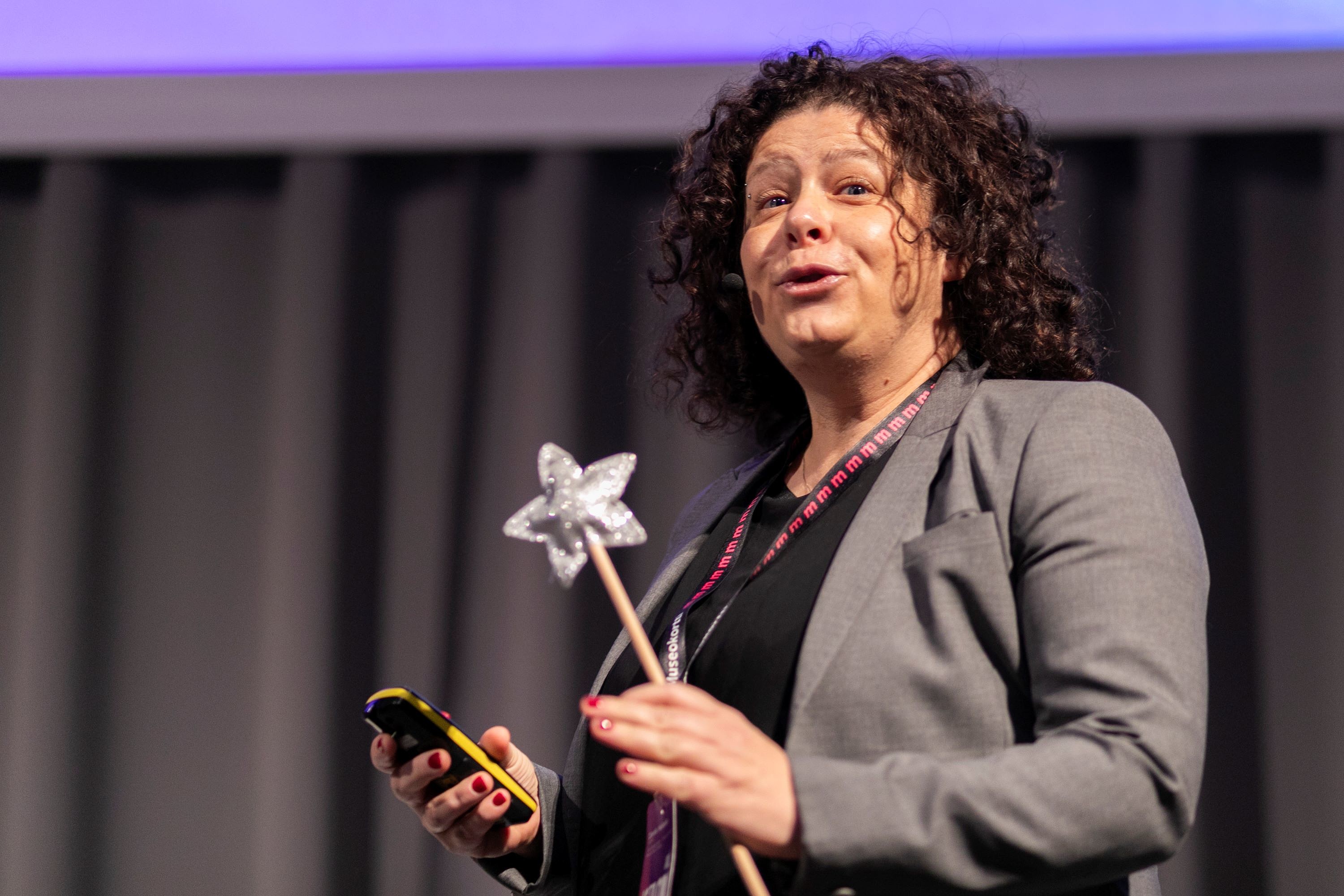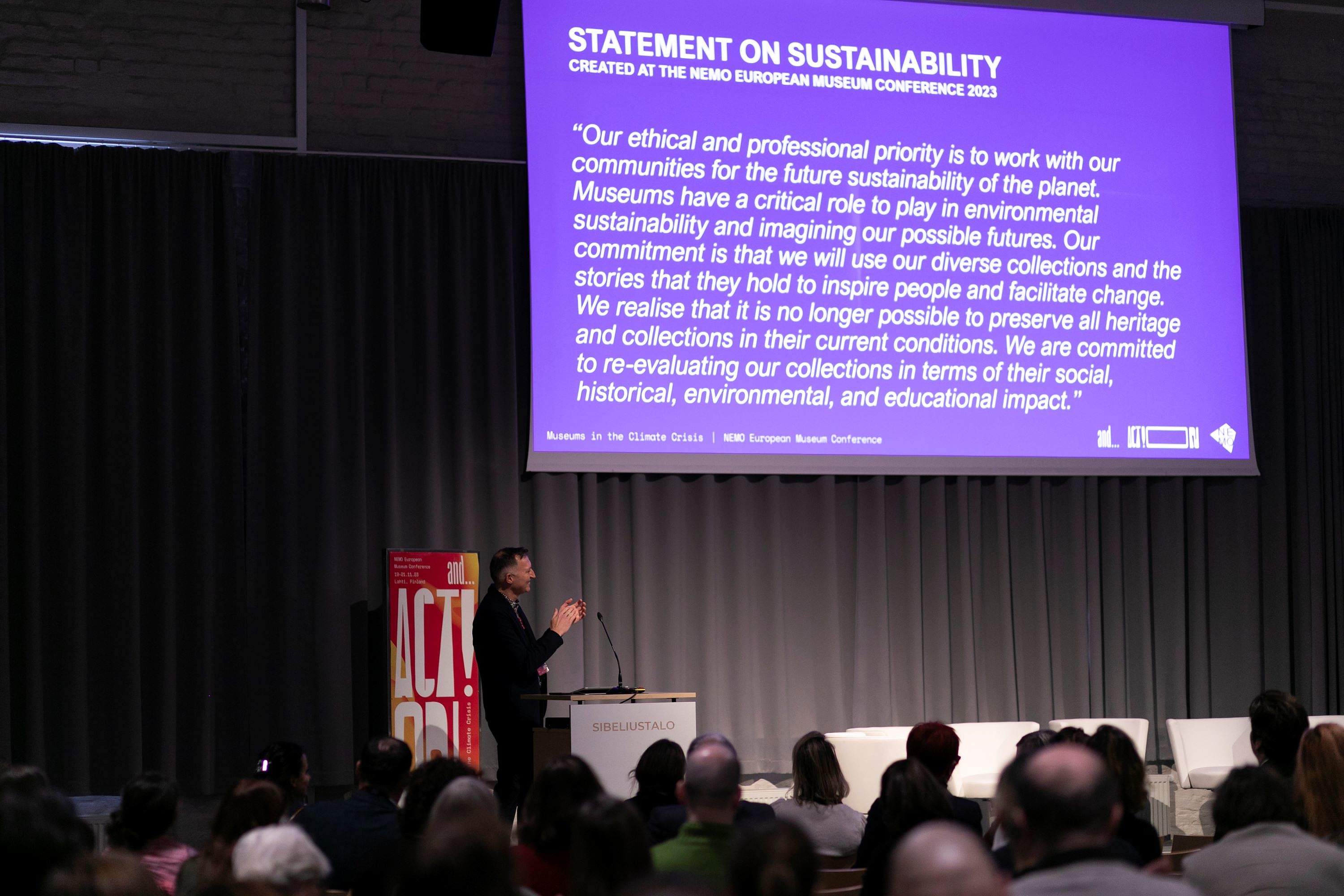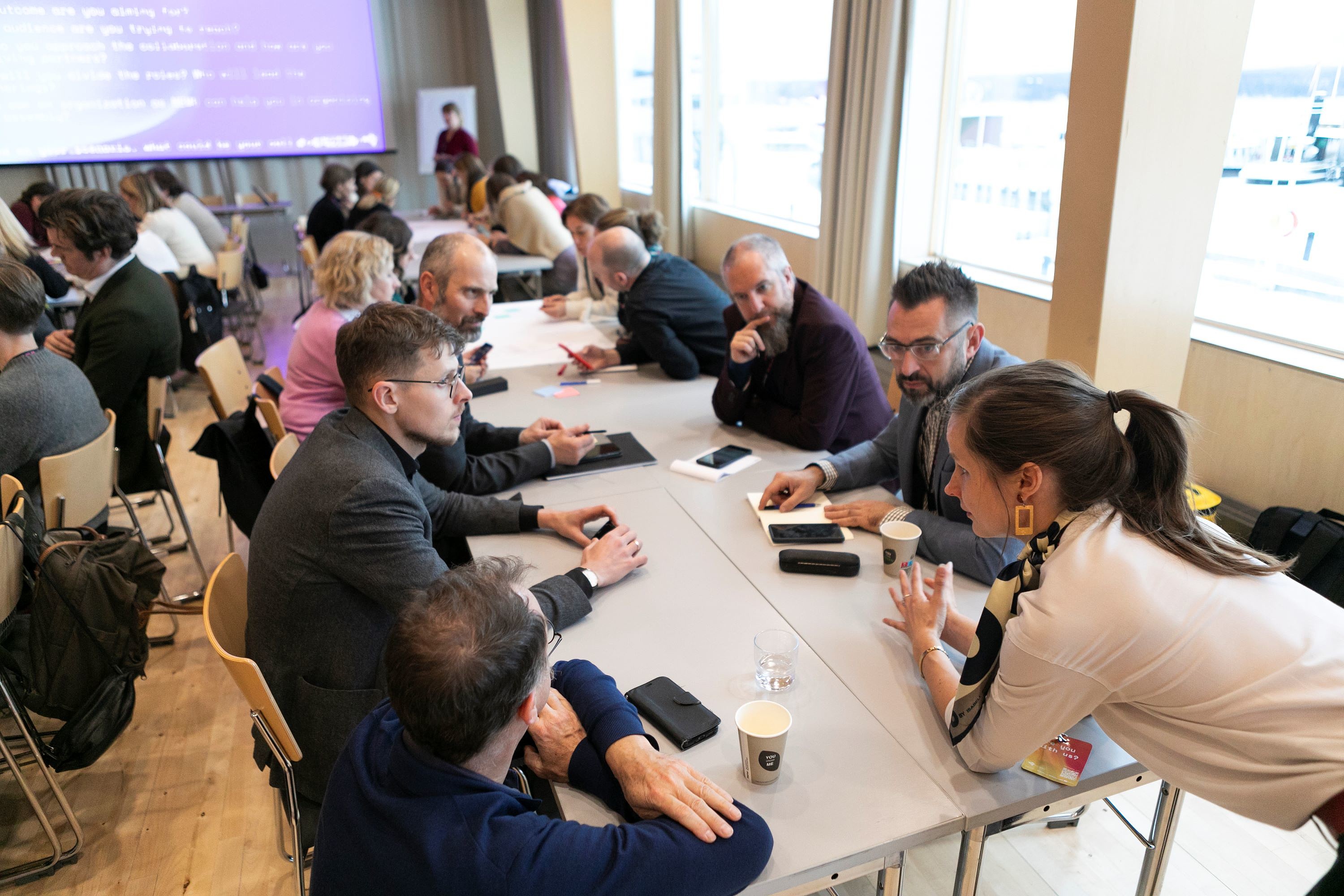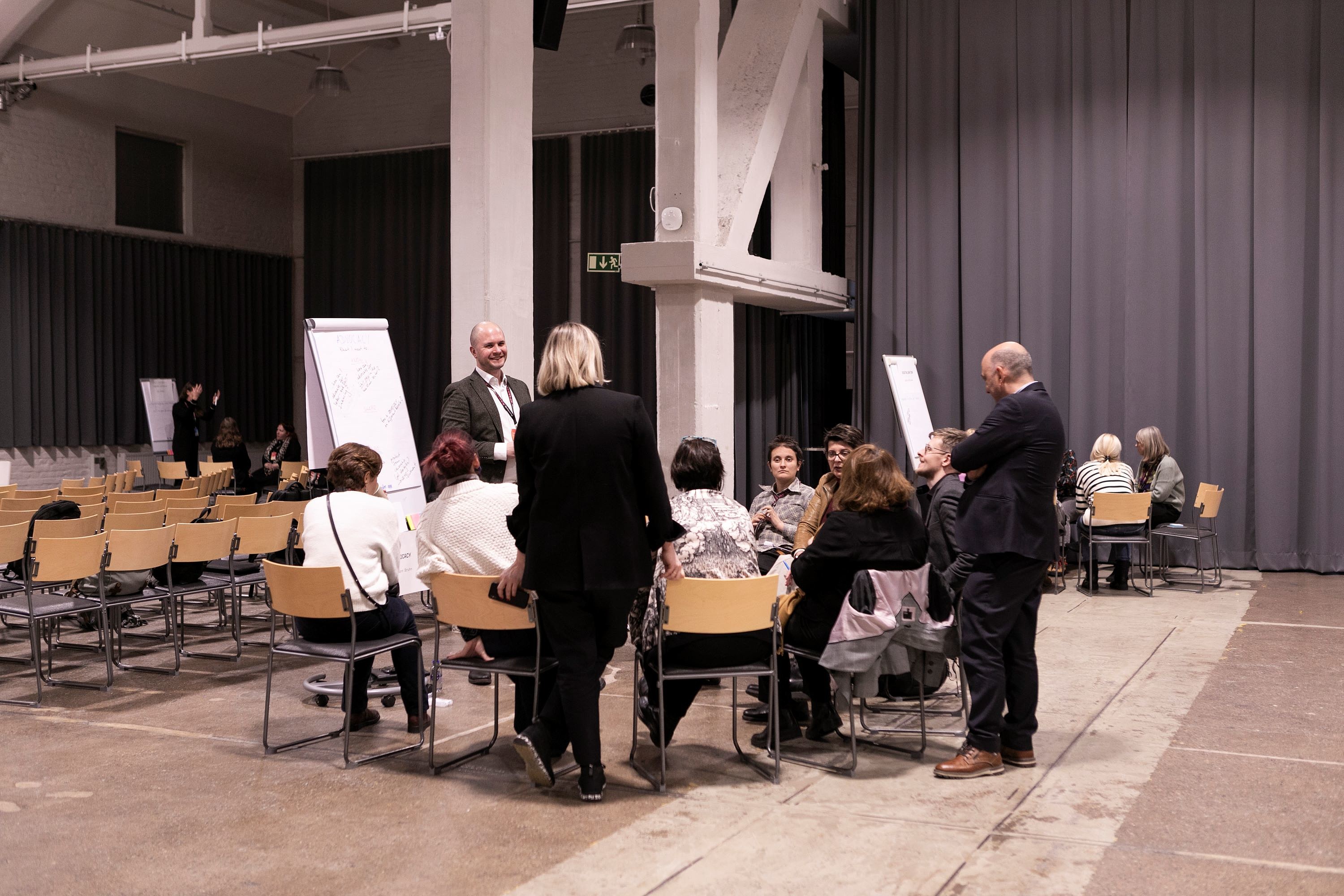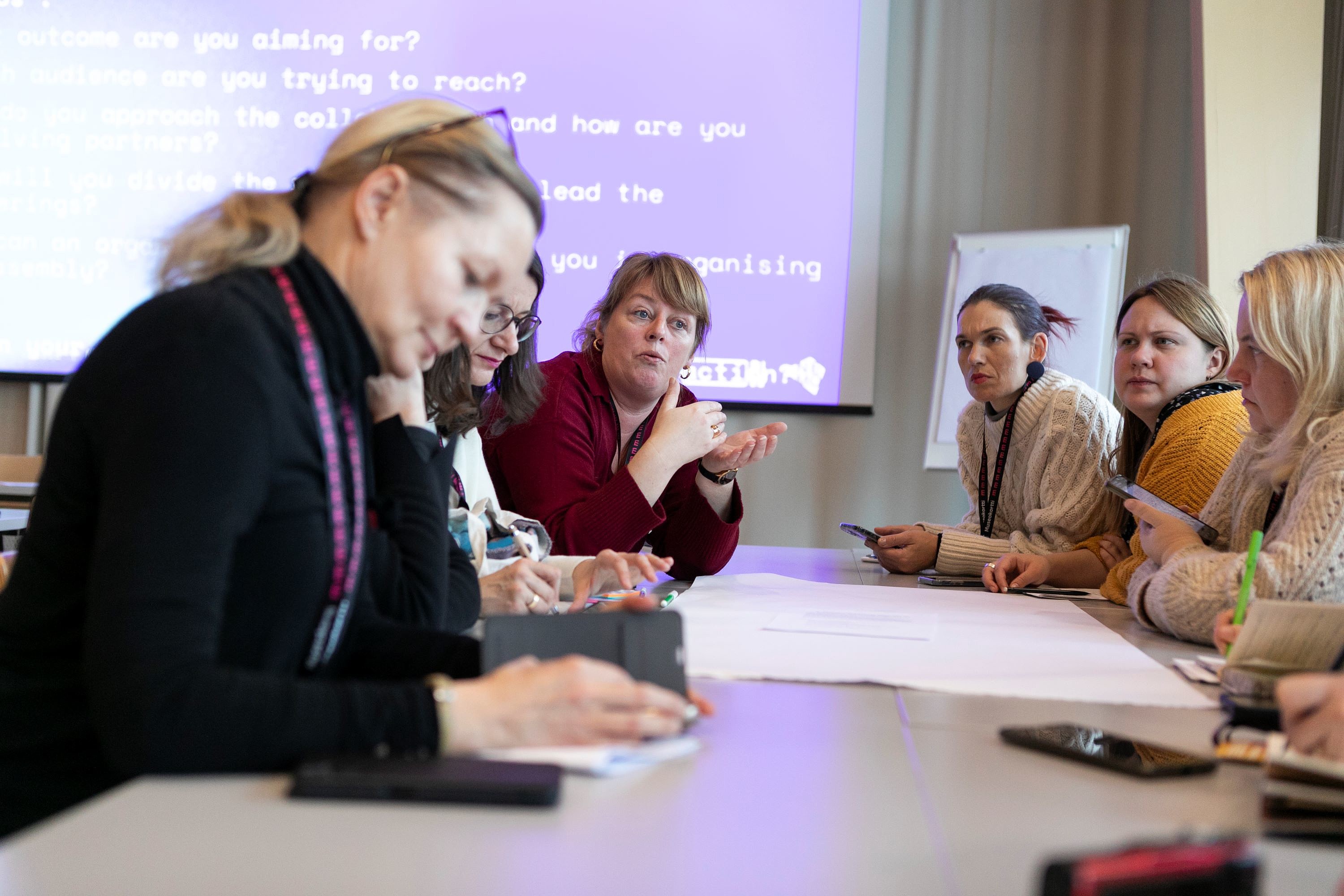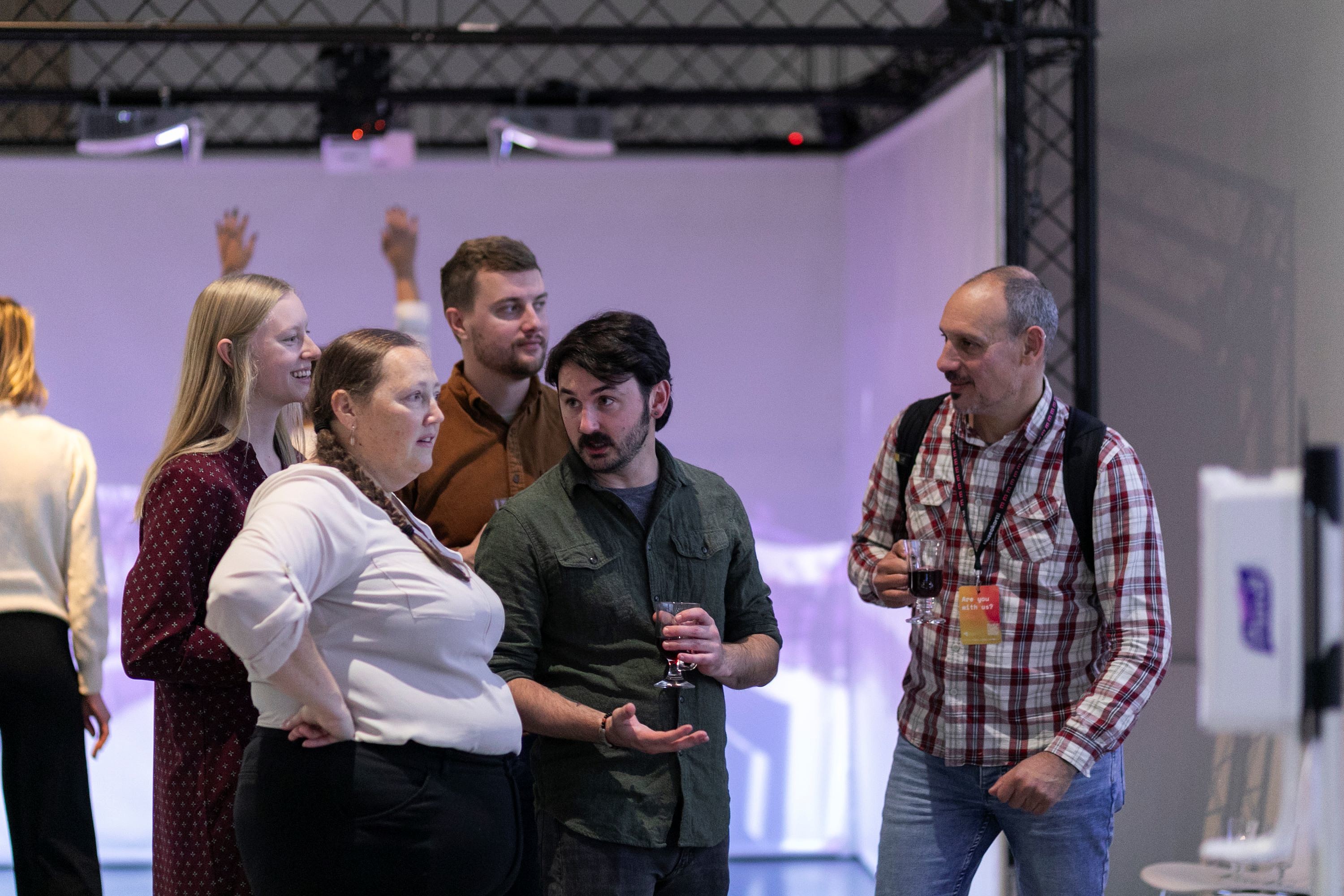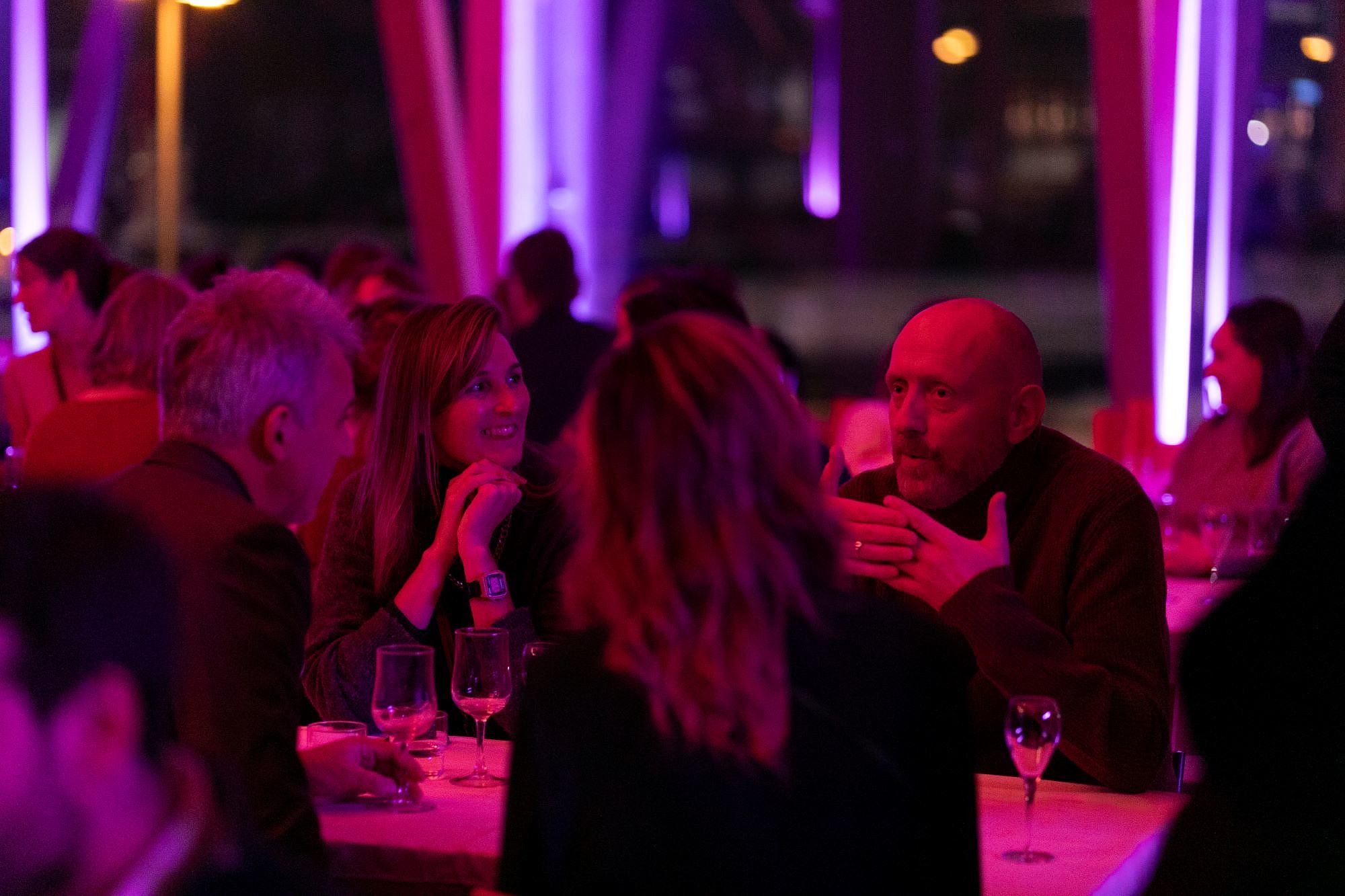The NEMO European Museum Conference 2023 “and… ACTION! Museums in the climate crisis” took place from 19-21 November in Lahti, Finland. 300+ museum colleagues from nearly 40 countries joined to explore how museums can take action for the climate and a sustainable future.
As the sector stands at the brink of change, NEMO wanted to inspire and offer guidance on how museums can be part of the solution and identify where they can contribute to climate action. Together we explored sustainability strategies, risk management as preventive measures and how to transform museums into futureproof and sustainable organisations in Lahti, the European Green Capital (2021). Let’s continue to work together to build strong alliances to find collective strength to contribute to global action for climate!
To amplify the important messages of the conference and our speakers, we recorded all presentations. Find them in a playlist on our YouTube channel or scroll down to watch the videos and to review the main outcomes of the conference.
At the conference, the directors of the European national museum organisations agreed on a statement that was published by NEMO as a pledge of the European museum sector to move forward and to become more sustainable. The statement includes an assurance to encourage the re-evaluation of museum collections with a view to their environmental and social effect, among others.
In order to put the pledge into concrete action, and to support and inspire museums in their sustainable transition, NEMO also launched a new interactive map of climate actions by museums and the new report Museums, Climate and Politics - Taking political action in the sustainable transition.
Revisit the conference
Check out the recording to relive, or experience for the first time, the NEMO European Museum Conference 2023. In addition to inspiring keynotes and engaging panels on the mainstage, the full programme also included eight workshops to offer our participants opportunities of practical hands-on learning.
The conference opened with strong keynote by Kirsten Dunlop (EIT Climate-KIC). She cut to the chase and spoke frankly about the climate emergency and the need to push for systemic change now. Our world is doing worse than predicted and global warming will make most of the world inhabitable. Culture can help us create the change that is needed to save the world from the climate crisis. If we join forces to push collaborative action, we can unlearn damaging habits to relearn and gain new mindsets to be part of nature and create a better system.
"Part of the solution", moderated by Birgitte Kehler Holst (Danish Museums Association), opened with a presentation by Julie Decker (Anchorage Museum Alaska), who finds that museums’ most impactful role is to partner and co-create with communities to imagine possible futures. Heidi Rosenström explained how the Heureka Science Center uses emotions to communicate about complex issues and help their audience move from awareness to action. Ciprian Stefan (National Network of Romanian Museums and ASTRA Museum) explained how the Sustainable Development Goals (SDGs) can be integrated into cultural programmes to facilitate learnings from the past, adapt current solutions, and encourage efficient use of resources.
Keynote - Museums Facing Extinction
Panel - Part of the solution
"Part of the problem", moderated by Karen Jagodin (Vabamu Museum of Occupations and Freedom), put a critical look at museum operations and identified measures to make museums futureproof. Stefan Simon (Rathgen Research Laboratory) criticized the overuse of climate control systems and the trend to build more and more when we should use less resources. He also asked what’s worse for art objects, climate activists or climate change? Łukasz Bratasz (Jerzy Haber Institute of Catalysis and Surface Chemistry and Polish Academy of Sciences) joined online to deliver a presentation about responsible use of energy. Teemu Kirjonen (Åbo Akademi University Foundation – Sibelius Museum, Ett Hem & Casa Haartman) contributed with input about organisational transformation and carbon-neutrality.
“Taking action on climate” brought together three museum professionals and climate activists in a conversation about acting for the climate: Rebekka Eschauzier (Extinction Rebellion Belgium), Emek Yılmaz-Sancar (Museums for Future Türkiye), and Vera Carasso (Dutch Museums Association). What can museums learn from climate activists and how can climate activists start collaborating with museums rather than only using them as a stage for their calls for action? Eva Koppen (Association of European Jewish Museums) facilitated the conversation between the invited speakers and the conference participants.
Panel - Part of the problem
Talk - Taking action on climate
In the interview Claudia Casali (Director of the International Museum of Ceramics) shared her museum’s first-hand experience with natural disasters after the floods in May 2023 in Italy. Global warming will increase natural disasters, such as floods, in the future and thus putting museums and their collections at risk. The International Museum of Ceramics was filled with water and several objects were severely damaged. The staff had to work quickly and make fast decisions while developing emergency plans on the spot.
The final conference recording is of the Museum Slam on Stories of Action, moderated by Rebecca Thonander (NEMO), that aimed to empower the audience to get started with climate action at their institutions or offer a motivational boost to carry on with an ongoing project. The conference participants got to meet six inspiring individuals, who shared six equally inspiring projects: Ana Salvador, (House of European History), Harry Cutmore (Natural History Museum London), Cato Ebeling Koning (National Maritime Museum in Amsterdam), Urška Repar (Museum of Recent History Celje), An Lavens (BELvue Museum) and Ilenia Valerio (Natural History Museum Oslo).



